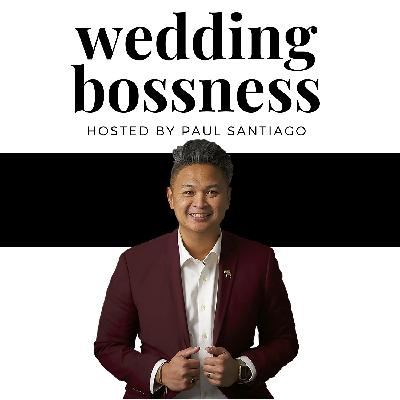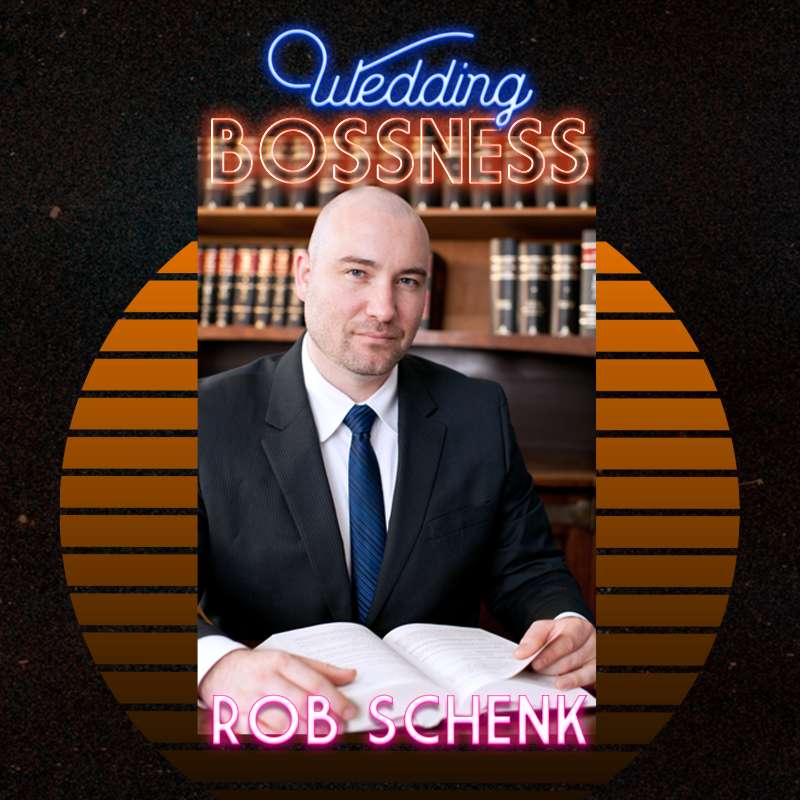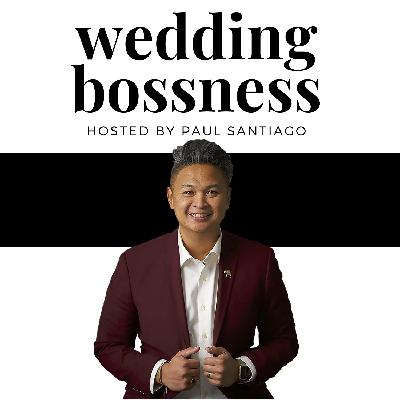 The Power of Language and How it Can Transform your Business with Renee Dalo
The Power of Language and How it Can Transform your Business with Renee Dalo
Description
Episode transcript:
PAUL SANTIAGO: Thank you for being on the show. I really appreciate it, Renee.
RENEE DALO: I'm so happy to be here. This is going to be great.
PS: How long have we known each other? We've known each other--
RD: For so long.
PS: Yeah, but it's just from a distance all the time.
RD: We're at the same networking events all the time.
PS: Yeah, we just never get to chat, so this perfect for me.
RD: Yeah, we never have a sit-down.
PS: I've always wanted to talk to you, because you're always the most colorful person in the room.
RD: Oh, you're so sweet.
PS: And always catches my attention.
RD: I love that, thank you.
PS: So yeah, of course. And thank you for being here, really appreciate it. Before we start, I would love it if you tell the listeners and the viewers something about yourself that they would probably be surprised to know.
RD: So I have been to every state in the contiguous US at least once, if not twice. Because when I was younger, I was a musical theater actor, and so I toured the country in a bunch of shows. So I've literally been everywhere except for Hawaii now. But I can't really tell you where anything is, because all I've ever seen is the inside of the tour van and the inside of the theater. So super well traveled, minimally.
PS: Nice. But you've tried to hit the touristy spots of every--
RD: Yeah. When we were in Memphis, we didn't have time to go to Graceland. I've driven by the sign that says "Grand Canyon" four times. This is just life on the road. You're always off to do another show and you're always off to do something else. So I always joke with my husband that eventually I'm going to make him get an RV and show me all the things I missed in my twenties. Even though I was right there, it's just we couldn't go.
PS: We've always thought about renting an RV, but me and Stella, my wife, we're not really outdoorsy people.
RD: Oh yeah, no, I'm not an RV person. I'm a Four Seasons person. I'm a room service, down comforter person for sure. Stella and I are the same, I think, in that, and you as well. But something about, I just feel like getting an RV and seeing the country is the way you do that particular thing.
PS: Yeah, it's easier. And it's probably the most American thing you could ever do, going around the country, right?
RD: Yeah, I agree, yeah.
PS: And it always confuses me, because I always felt like the most American thing you could do is just hop on a plane and just fly and travel. But no, it's just getting into the nitty gritty, and do it like Walter White.
RD: I don't think we're going to make any meth.
PS: Okay, hopefully not.
RD: That's next level, I'm not going to do that particular thing.
PS: Okay, so I'm always curious about how people start out, and I really want to know what your origin story is. How you started, and what got you into this industry. And also, what you're up to right now.
RD: Sure, so how did I go from being a musical theater actress to a wedding planner? So when you're an actor, especially in New York City, a lot of times you're working hospitality as a side job, and that was very true for me. I worked in a lot of fine dining restaurants in New York City. And then when I moved to LA, decided didn't really want to do musicals anymore, kind of didn't want to live out of a suitcase anymore. That life, really, it was great while it was, but then I was approaching 30 years old, and I thought, "I kind of want to lay down some roots somewhere." And I thought LA would be as good a place as any.
So I got a job in hospitality. I opened a restaurant, which is one of the restaurants at The Grove, which is a big outdoor mall here. It was a big deal to open this place, they built it from scratch. And I was part of that opening crew. And in the time that I worked there, I went from hostess to waiter to bartender to banquet server, banquet captain, banquet manager.
And so what ended up happening is that I was running the banquet rooms at this restaurant, they were six rooms, and I was one of the people that ran them. And I ended up doing a lot of weddings that way, because it wasn't a luxury venue by any stretch, but people would have weddings there, and they would always give them to me because, "Oh, Renee can do the weddings, she's good at that, she's good at the weddings."
At the same time, that was in my season of life where all of my friends were getting married. So I planned a lot of weddings as a hobby right around that same time, because they were like, "Well, you're doing it at work, and you seem good at this. Can you help me?"
So what ended up being-- I planned my best friend's wedding 12 years ago with $7000, like no money whatsoever, like nothing. What ended up happening is that people who were at that wedding, or people who knew my friend would say, "Oh." I would get random emails from people that were like, "Oh, can you help me plan my wedding? I was at this wedding," or, "I heard you do this."
And so I created a business before I even realized what I was doing, because I was getting emails and referrals from people that I didn't know. I remember one time, I got an email from this girl who said, "Jeanette sent me to you." And I was like, "Who the hell's Jeanette? I don't know this person." So I realized that I liked it, and I was good at it, and people were coming to me for it, and so I probably should do it.
And then it was a few years after that that I really started my business now, which is Moxie Bright Events. So it took me a few years to get really clear that it's a business that you could run and make a living. But I've been doing it for so long at that point, that it seemed silly that I wasn't doing it professionally. But that's what I did.
After I got married, my own wedding planner, because I got married in Philadelphia, said to me, "I don't understand why you're not a wedding planner in Los Angeles." And I was like, "Well, there's so many." And she was like, "So who cares?" And it was that weird-- sometimes you just need that one person to say the one right thing to you. And it's so simple, but having Erin say to me, "Who cares? Just go do it. It doesn't matter if other people are doing it too." I was like, "Oh, you're right." So yeah, it sounds silly, but it kind of just happened.
PS: Yeah, all you need is that one person to push you. And fortunately for us, it's someone close to us, so it's easier to be like, "Oh, okay, I'll give it a shot." Because they know you already.
RD: Yeah. She said, "You needed me less than any client I've ever had. I don't know why you don't do this professionally." And I was like, "Oh, I don't know." But again, this brings me back to what we're talking about today, is I had a lot of limiting beliefs about myself and about this work, and I had to work through those in order to be able to do this at the level that I'm doing it now.
PS: It's funny, because when you said your friend got married for $7000, which is pretty much nothing.
RD: Nothing.
PS: Stella and I got married, our budget was $6000.
RD: I love that. Well, how long ago was it though?
PS: I have to answer this correctly. It was 10 years ago.
RD: Yeah, see? My friend was 12 years ago. So back then, you could make something of that a little bit, a little bit more than you can today.
PS: Well, it was bare bones. We got married in a church, and our reception was at an Indian restaurant, an Indian buffet, which is $10 per person or something like that.
RD: Oh yeah. This wedding that I did for $7000 was in a photography studio. The power went out, because I didn't know enough to check the power. So when we plugged in all the lights and the DJ plugged in, all the power went out. And the DJ came up to me during the ceremony and whispered in my ear, "Do you want to have lights, or do you want to have music?" And I was like, "What are you talking about?" And he's like, "We have a power outage." And I just started crying, because I was like, "I don't know." Now, I would check the power. But it was so bare bones, minimal, minimal everything. We had a craft services caterer do dinner, it was crafty. It's so funny.
PS: Those things make you really, really stronger when it comes to accepting challenges as soon as you start out. How do you feel about that? When you start out your business, should you take more risks when you start up? Or should you take more risks when you're a little bit more confident?
RD: I think we should always be taking risks. I think if you own a business, I believe that inherently, you are a risk taker. I just think entrepreneurs have to have that little bit of-- we have a little bit of crazy up in our brains where we think, "I'm going to try this." And I think that if you are someone who really loves safety, maybe owning a business is not for you, because there's not a lot of safety happening all the time. I think at the beginning, you've got to throw yourself into the fire.
Honestly, at this point, I tell my clients or potential clients, there's nothing that rattles me. Your venue, God forbid, could burn down around us and I'm still not going to yell. Nothing gets to me, I've seen it. But the only reason I can say that is because I had a wedding where the power went out my very first wedding. So once you've lived through it and nothing bad happens, you figure it out, nothing can rattle you. But at the beginning, I think, just starting is a risk, right? So calculated risks, of course. Smart risks, hopefully. But you've got to take risks, there's no way around it, I think.
PS: Yeah, because once you take risks, I guess your senses are sharper, you're more aware of what's happening around you. For us, when




















